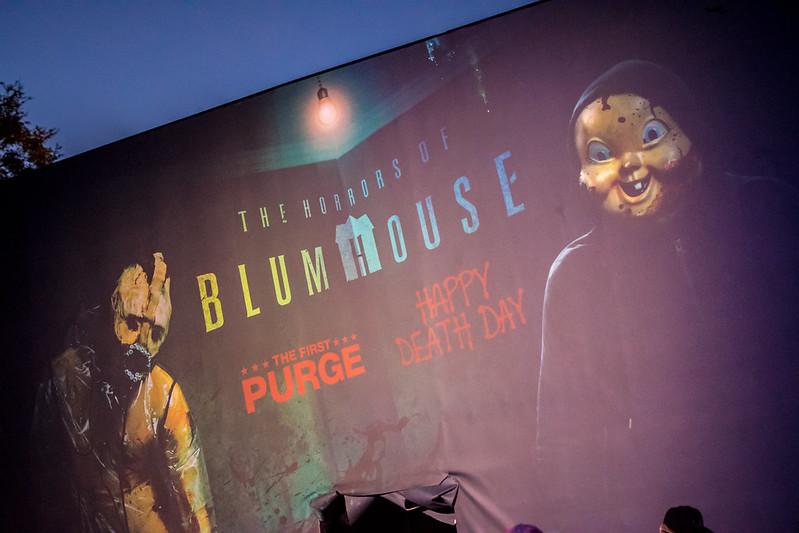Spoiler alert: These horror movies do not have clowns peeking out from sewers, or chainsaw-wielding serial killers. That being said, they are still earth-shatteringly horrific.
In their latest series of films, Blumhouse Productions (best known for hit horror flicks such as “Paranormal Activity” and “Insidious”) goes a step beyond the typical genre of horror, and showcases diverse voices in the process. The series of films includes “The Lie,” “Black Box,” “Nocturne,” and “Evil Eye.” Each movie explores topics that stretch beyond the usual boundaries of horror, addressing issues of diverse representation in film.
“The Lie,” starring Joey King of Netflix’s “The Kissing Booth,” is a story about a young girl who confesses to the murder of her best friend, Britney, and further tracks the journey that commences as her parents fight to keep the secret. On its surface level, it is a movie that seeks to add tension at every possible moment, leaving viewers on the edges of their seats as music builds in what seem like minor moments, and makes every knock on a door feel like a death sentence. Beyond the typical tropes of horror, however, director Veena Sud sought to make the film say more than a chainsaw-wielding serial killer ever could.
One scene in the film shows the father of Britney (Cas Anvar) being questioned by police. The police detective says to him, “What are you…Indian? Arab? What?” His voice stutters as he says, “Pakistani”. The detective immediately asks if he ever loses his temper with his daughter, effectively accusing him of abuse.
Acknowledging anti-Islam sentiments was a theme that Sud wanted to include in her direction of the film: “What I wanted to do specifically [in the film] was speak to race relations, and how the victim becomes the perpetrator.” Through a horror film that could have very well said nothing about today’s intense political climate, Sud chose to make a statement, and did so in a way that highlighted her own directional expertise.
She is not the only director at Blumhouse to subvert the genre of horror. In the white-dominated horror industry, both Emmanuel Osei-Kuffour, director of “Black Box,” and brothers Elan and Rajeev Dassani, co-directors of “Evil Eye,” chose casts composed primarily of people of color. “Black Box” follows a black man rediscovering his life after suffering amnesia, while “Evil Eye” centers its storyline around the culture of the protagonist’s family from India. By telling the stories of these families, they expand the arena of horror into something accessible for a wider audience, as well as effectively letting their voices be heard.
When you watch the Blumhouse horror series, you are doing much more than watching a horror movie. You are:
- Supporting emerging directors (“Black Box,” “Nocturne,” and “Evil Eye” are all the directorial debuts of their respective directors),
- Supporting diversity in the film industry,
- Taking a look at themes of morality that are unusual in a horror movie, and
- Finally taking a break from those Zoom classes you’ve been in all day!
When you leave one or all of these movies, you’ll be thinking about a lot more than the monster in your closet. You’ll leave with an experience that makes you question the diversity that you support in movies – are your favorite directors helping you to see a new perspective on the world, or are they just going for the jump scare?
All four films are available for streaming on prime video now.
Featured Image courtesy of Patrick Jeffers via Flickr Creative Commons


















































































































